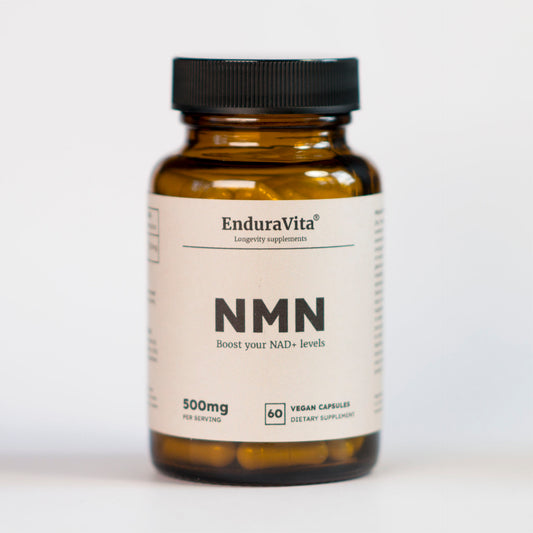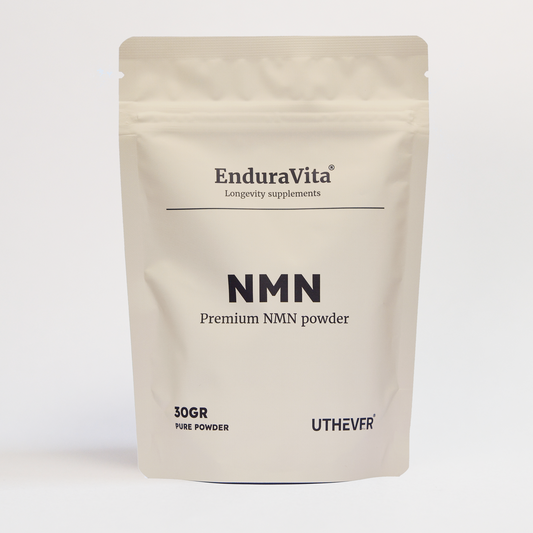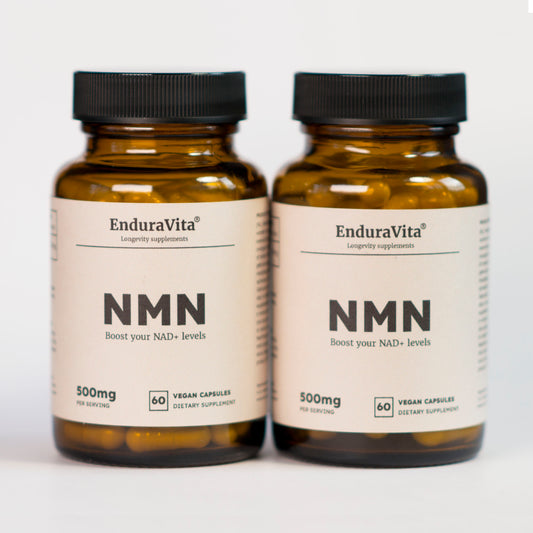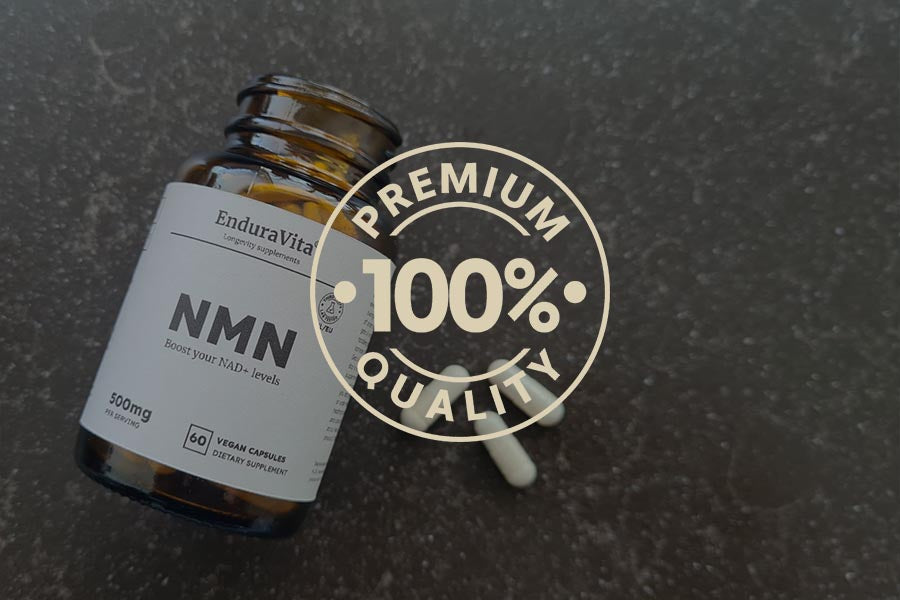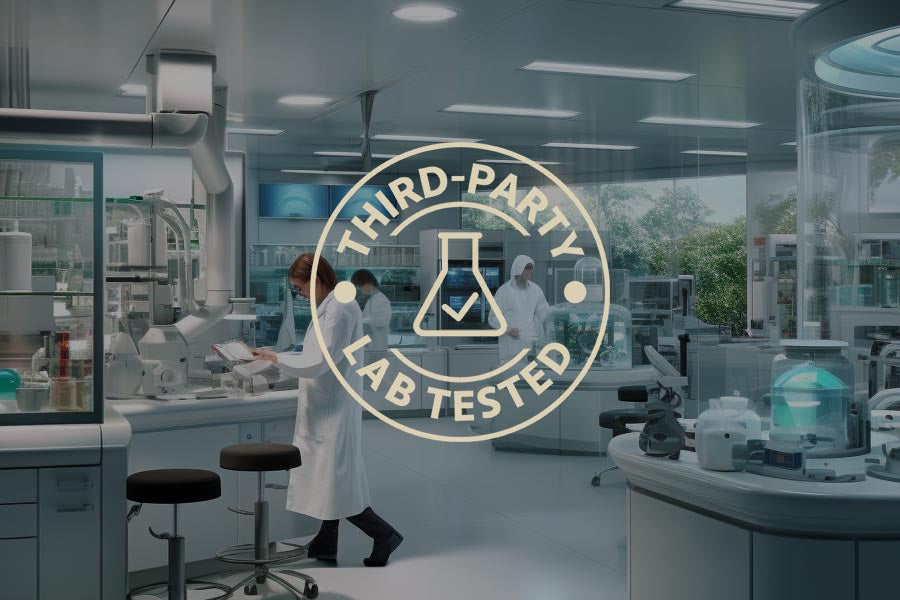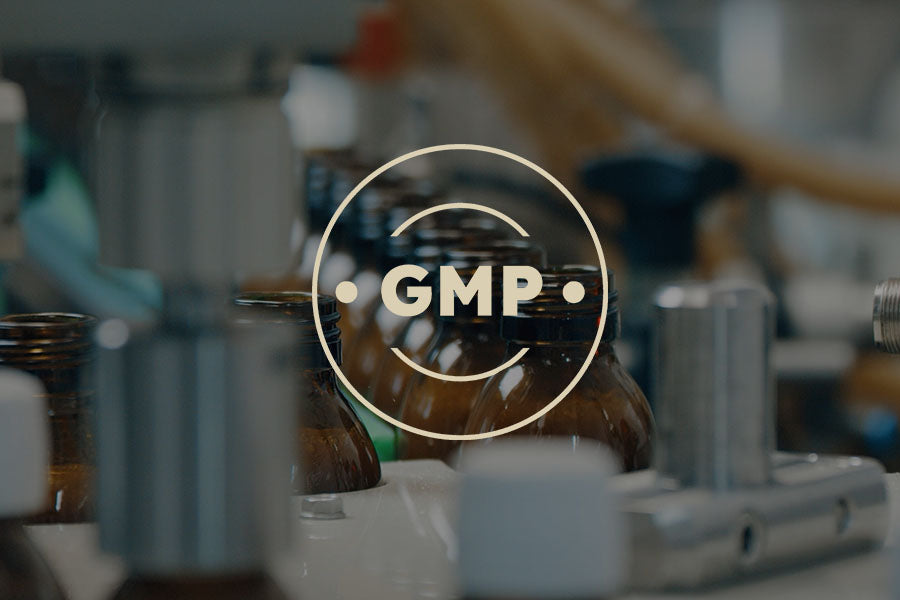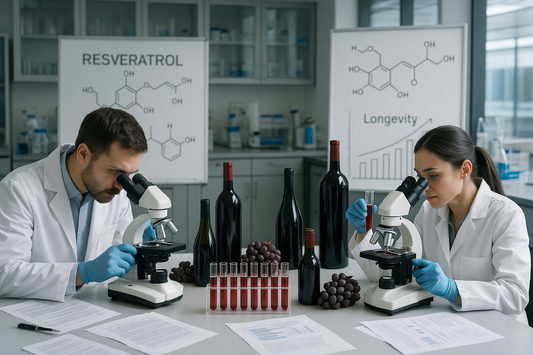
Is NMN prohibited? What is the current status of NMN within the EU and beyond.
NMN (Nicotinamide Mononucleotide) is a substance that has become very popular in recent years, both in the scientific world and among consumers. NMN has potentially beneficial effects on health and acts as a promising anti-aging supplement. But is NMN legal and is it safe? We address that in this article.
Is NMN prohibited?

NMN (Nicotinamide Mononucleotide) is not included on any prohibition list and is considered by some authorities within the European Union as a so-called “Novel Food”. There is still discussion within the EU about this qualification.
The current state of affairs is that the approval procedure for NMN as a food ingredient within the EU has not yet been completed. This is because the European Commission wants to determine whether NMN was sufficiently present in food before 1997 to be considered “non-novel.”
Since 2023, various companies have applications pending for approval under the Novel Food regulation. It is expected that more clarity will come on this in the coming years.
Meanwhile, NMN is a subject of research worldwide – both within and outside the EU – and is available in various markets. Many consumers closely follow these developments and orient themselves via specialized websites and online platforms on available information about this ingredient.
Is NMN actually a Novel Food?
There is discussion about this question. NMN naturally occurs in the human body, is an intermediate in NAD⁺ metabolism, and is formed from vitamin B3 (niacinamide). Additionally, NMN is found in various foods, such as vegetables, fruits, milk, and other animal products – and in breast milk.
Based on that natural presence, various researchers and market participants believe that NMN was already present in human nutrition to a sufficient extent before 1997. According to that view, NMN would not fall under the definition of a “Novel Food”, but should be considered an existing food component. However, the European Commission has not yet made a definitive statement on this. EnduraVita follows the position that NMN, given its natural presence and endogenous origin, cannot be considered a completely new food component, as long as no definitive statement has been made by the European Commission.
Why do you sell NMN?
Interest in NMN is increasing significantly worldwide. The ingredient is being researched in various countries and in numerous clinical and observational studies.
NMN (Nicotinamide Mononucleotide) is a molecule that naturally occurs in the human body as part of the NAD⁺ metabolism and is formed from vitamin B3 (niacinamide). Additionally, NMN has been found in small amounts in various foods, such as vegetables, fruits, milk, and breast milk.
EnduraVita wants to offer consumers interested in NMN a transparent and high-quality product. Various market studies have shown that a significant portion of the NMN offered online contains little or no actual NMN.
Therefore, EnduraVita attaches great importance to quality, traceability, and purity. Each product is produced according to relevant ISO and GMP standards, and each batch is tested in an independent laboratory for identity, purity, and stability.
In the scientific literature, more than 18 human studies have now been published in which NMN was used as a research substance. No serious side effects have been reported in these studies. This data contributes to the growing knowledge about the safety profile of NMN, but the formal assessment by the European authorities is still pending.
View our range of NMN supplements here.
Which supplements are also "Novel Food" but still widely available?
The situation surrounding NMN shows similarities with other ingredients that fall under the Novel Food regulation, such as CBD extracts.
In both cases, the formal approval procedure at the European Commission has not yet been completed, while the substances are already widely available in many countries.
These examples show that market development and consumer demand often progress faster than European approval procedures. As a result, a temporary situation arises where products with a not yet finalized legal status are still in circulation.
NMN is being researched worldwide in the context of nutrition and aging processes. In response to the growing interest, more and more producers are choosing to include the ingredient in their range while simultaneously awaiting the outcome of the European assessment.
It is expected that European authorities will provide more clarity in the coming years about the formal approval of NMN as a dietary supplement.
In practice, there seems to be little to no active enforcement within the European Union regarding the sale of NMN.
Although various member states formally designate NMN as a so-called “novel food”, most authorities do not actively intervene as long as products are demonstrably safe, correctly labeled, and comply with the general requirements of European food law.
This is more common with ingredients whose legal status is still under review. The degree of enforcement varies by member state: some countries choose a cautious approach pending the European Commission's assessment, while others do not prioritize enforcement as long as no safety risk has been identified.
This practice shows that there is currently no uniform policy for NMN within the EU, which is characteristic of the transition period in which a new ingredient awaits formal approval.
Is NMN a naturally occurring substance?

Nicotinamide mononucleotide (NMN) is a naturally occurring substance in the body and is present in all cells of the human body. The advantage of this is that the body knows how to handle this substance. NMN is used by all cells in our body and is an alternative form of vitamin B3 (Niacin). At the molecular level, it belongs to a class of molecules called nucleotides, the building blocks of RNA and DNA. NMN is converted into nicotinamide adenine dinucleotide (NAD+), thereby increasing NAD+ levels. Therefore, NMN is often referred to as an NAD+ booster.
Is NMN safe?
Meanwhile, more than 18 human studies have been conducted by, among others, Harvard and various major institutes from around the world. The studies show that NMN is safe, even up to a daily dose of 1200mg. Probably also up to a higher dose, but this will need to be further investigated. NMN is a derivative of vitamin B3 and NMN is a substance that naturally occurs in the body, so the body knows how to handle this molecule. On our website, we regularly publish relevant studies about NMN. Read more here.
Legal status of NMN in other countries
The approval process for NMN is slower within the European Union than in some other regions. In countries such as Australia, New Zealand, the United Kingdom, Switzerland, and in parts of Asia, South America, and Africa, NMN is already sold as a dietary supplement.
In the United States, NMN had a fluctuating status. The ingredient was initially widely available through major retailers, after which the U.S. FDA temporarily placed it under the drug preclusion clause pending further review. However, on September 29, 2025, the FDA officially confirmed that β-Nicotinamide Mononucleotide (NMN) meets the legal definition of a dietary supplement under the Food, Drug and Cosmetic Act (FD&C). Thus, NMN is once again allowed as a dietary supplement on the U.S. market.
Worldwide, the number of markets where NMN is available as a dietary supplement is growing. The European Commission is currently reviewing various approval applications, after which more clarity is expected in the coming years about the official status of NMN within the EU.
NMN known from Jinek

On January 5, 2023, Professor Andrea Maier was a guest on the talk show of Eva Jinek, where she spoke about NMN as a topic within the science of aging. During the interview, she stated that researchers in mouse studies with NMN have achieved remarkable results, including an extension of lifespan by about 60%. Additionally, she discussed the state of research on NMN in humans and indicated that the substance is currently the subject of further scientific evaluation.
She also mentioned that NMN has not yet been officially approved as a dietary supplement in the Netherlands, but it is already available through international providers. Unfortunately, the interview is no longer available online.
Can I naturally increase my NMN level through diet?

NMN is naturally found in various foods. Some food sources rich in NMN are:
- avocados | 0.36 to 1.60 mg per 100 grams
- broccoli | 0.25 to 1.12 mg per 100 grams
- cabbage | up to 0.9 mg per 100 grams
- tomatoes | 0.26 to 0.30 mg per 100 grams
- raw beef | 0.06 to 0.42 mg per 100 grams
- Small amounts of NMN are also found in cow's milk, cucumbers, and edamame.
The problem is that for a standard dose of NMN (500mg), you would have to eat a lot of food, about 50 kilos of avocados, for example.
Studies in mice have shown that the gut easily absorbs NMN from food, but more studies are needed to investigate how eating NMN-rich foods can increase NAD levels in your cells.
What exactly is a “Novel Food”?
The term “Novel Food” is used within the European Union for foods and ingredients that were not consumed to a significant degree by humans within the EU before May 15, 1997 — the effective date of the first European Novel Food regulation.
This category includes, among others:
new or innovative food ingredients,
ingredients produced with new technologies or production processes (e.g., nanotechnology or fermentation),
and foods that are traditionally used outside the EU but have no history of consumption within the EU.
For each Novel Food, prior approval from the European Commission is required, based on a safety assessment by the European Food Safety Authority (EFSA).
Conclusion: the status of NMN within the EU
The discussion about the legal status of NMN shows that scientific progress and European regulations do not always move at the same pace. While the safety and use of NMN are being extensively researched worldwide, the approval process within the EU is still being finalized.
EnduraVita closely monitors these developments and bases its policy on scientific insights, transparency, and product safety.
We believe that a naturally occurring substance like NMN, which is demonstrably present in food and has been the subject of research for many years, will eventually have a clear place within European regulations.
Until formal approval is granted, we will continue to communicate carefully about the current state of affairs and strive to provide consumers with reliable, well-founded information.
Disclaimer:
The information on this page is intended solely for educational and informational purposes. No medical, therapeutic, or health claims are made. This content is not intended to diagnose, treat, or cure diseases, and does not replace professional advice from doctors, dietitians, or other experts.


